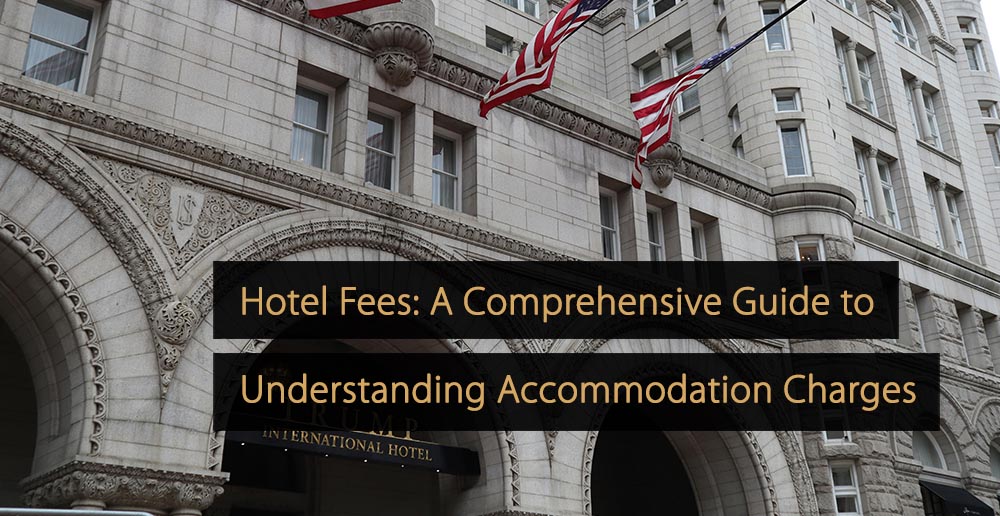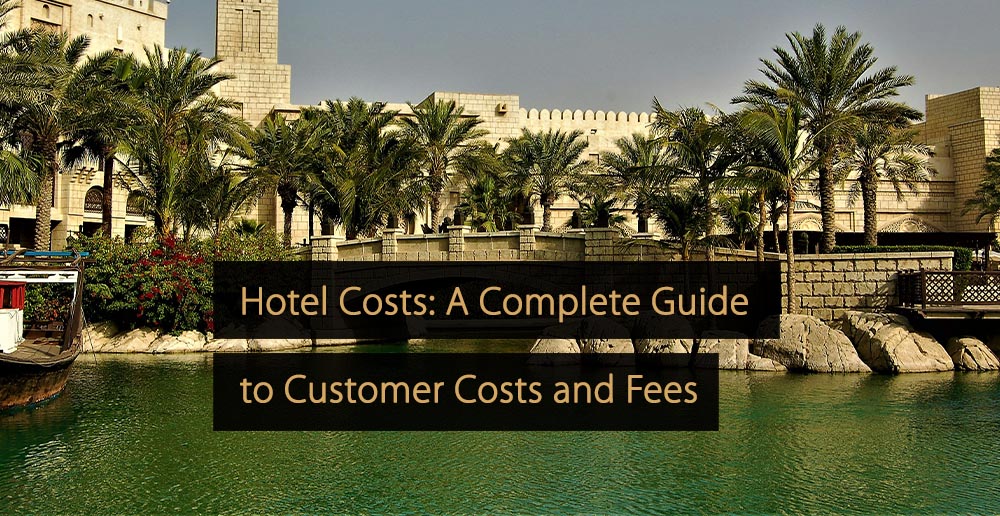Deciding how to start a hotel business is always complex. There are many factors to consider: the location, the type of hotel you want to run, the clientele you want to attract and the services you plan to offer, and more. In this article, you’ll discover everything you need to know when considering a new hotel business.
Table of Contents:
- What is the Hotel Industry?
- How to Start a Hotel Business – 10 Steps
- Step 1: Decide on Location
- Step 2: Conduct Market Research
- Step 3: Analyze Your Competition
- Step 4: Determine Your Unique Value Proposition
- Step 5: Write a Business Plan
- Step 6: Find a Way to Finance Your Hotel Business
- Step 7: Staffing, Recruitment & Training
- Step 8: Build & Put Systems In Place
- Step 9: Develop Your Marketing Strategy
- Step 10: Plan Your Grand Opening
- How To Identify Your Hotel Market Segments
- Hotel Market Segmentation
- Succeed in Hotel Investments
- Entering the Hospitality Industry: Start Your Own Hospitality Business
What is the Hotel Industry?
When discussing starting a hotel business, it’s useful to consider the hotel industry. Entities providing services and products for travel, leisure, and related fields form the hospitality and tourism industry. Within this industry, businesses fall into four general categories. These are travel, tourism, food and beverages, leisure and recreation, and hotels.
Many hotels also provide products and services that fall into other areas of the hospitality industry, as they may have restaurants, spas, golf courses, and other facilities available for non-guests. Their primary purpose, though, is to provide guests with accommodation overnight. The hotel industry is one of the most important global industries, generating billions of dollars in revenue and providing employment to countless people.
To learn more about the industry, read “Hotel Industry: Everything You Need to Know About Hotels!“
How to Start a Hotel Business – 10 Steps
In this section, you’ll discover the steps to follow when planning your new hotel business.
Step 1: Decide on Location
The first step when considering how to start a hotel business is the location of your hotel. Besides considering where you might locate your new enterprise, you also need to consider the global hospitality industry and where your hotel will fit in. Location is critical when setting up a hotel business. Not only will it affect the cost of property and the attendant fees and taxes, it will also determine the kind of clientele you will be able to attract and how your hotel should be marketed. What will drive demand in that particular area? Is the location well-connected to transportation (major roads, airports, rail stations, subways, and bus routes)? What features does the area have regarding shopping, restaurants, bars, leisure facilities, tourist attractions, or major business centers?
Step 2: Conduct Market Research
Once you’ve determined a possible location, the next step is to conduct thorough market research. This is vital and can mean the difference between success and failure. When you’re deciding how to start a hotel business, you need to take a detailed look at other hotels in the area and how yours will be able to compete. Looking at your competition will give you a good idea of what your guests will expect and what they’re looking for in terms of accommodation and services.
If you’re already familiar with a particular type of guest, you can aim to attract this market segment. Another approach is to start with your vision and determine how you’ll attract people who want what you’re offering. You can also base your hotel business on the type of guests who already visit hotels in the area, aiming to attract them away from your competitors.
Step 3: Analyze Your Competition
When starting any business, a key step is to analyze your proposed enterprise’s strong and weak points. Looking at your competition can reveal a lot about your hotel’s potential strengths and vulnerabilities. For instance, if your preferred location already has a lot of successful hotels, this can represent a weakness as you might have to vie for a limited number of guests. This could also be a strength in some cases: there is obviously high demand in your location.
Look into your competitors’ performance and identify their strong points and areas where they’re lacking. Determine each guest’s revenue, length of stay, how many guests no-show or cancel, the proportion of last-minute bookings, etc. Use this data to determine each room’s operational efficiency, occupancy rates, and revenue.
Step 4: Determine Your Unique Value Proposition
Understanding your competitors will help you to consolidate your vision for your hotel. You probably have a general idea of the business you’d like to operate. Now you can determine how you’ll reach your goals in the local hospitality landscape and how your business will be positioned. You will also be able to nail down your hotel’s brand identity. This is crucial, as it’s the face of your hotel: it creates the impression that guests receive when they see your hotel online and when they visit.
Your hotel’s brand is part of your UVP (unique value proposition), the quality of your hotel that makes it special and encourages guests to choose you over your competitors. Your UVP needs to be something simple and essential that your business offers and others don’t. Guests should be able to grasp it in around 15 seconds.
Video: How to Create Your USP
Step 5: Write a Business Plan
Creating a business plan can double your chances of success. A business plan outlines your idea for your hotel and outlines all the steps you will take to realize your aims. It’s a document that takes the question of how to start a hotel business and breaks it down into sections, creating a roadmap for you to follow as you progress from the idea stage all the way to your hotel’s grand launch party.
Creating a business plan helps you develop your business in many ways. For example, it lets you refine your ideas, assists in spotting potential obstacles and opportunities, and makes your business more credible when approaching investors.
To discover everything you need to know about creating a business plan, read “Hotel Business Plan: Write a Successful and Effective Hotel Business Strategy Plan“ today.
Step 6: Find a Way to Finance Your Hotel Business
Asking how to start a hotel business often means asking how to finance one. Setting up a new hotel will generally require an influx of investment from outside. This can be through loans, grants, institutional, and private hotel investments. You’ll need financing to purchase or construct your hotel, refurbish and decorate the interior, hire staff, and install the necessary hotel technology, just a few of the costs involved.
The prospect can be a daunting one. Instead of scaling back your ambitions, you need to get expert advice on hotel financing and how to secure it. In “Hotel Financing: Learn How to Finance Your Hotel Business,” you’ll learn all the most important elements of hotel financing: what it is, who can provide it, and how to secure it.
Step 7: Staffing, Recruitment & Training
Recruiting and retaining the right staff is vital in any industry. In the world of hotels and hospitality, it’s even more crucial. Many of your staff will be in regular contact with your customers, often many times per day, so it’s vital that they have not just the right skills but the right attitude. Before you even begin to look for staff, you need to have a clear picture of the organizational culture you want for your hotel business.
With your UVP as a template, determine the culture you intend to create. If you haven’t previously hired staff for a hotel, it’s a good idea to seek expert advice. Many businesses start by recruiting from the top down, securing excellent hotel management and other higher-level staff, and allowing them to oversee recruitment, onboarding, and training across their various hotel departments.
Step 8: Build & Put Systems In Place
As a hotel owner, you must decide whether to construct a new hotel or buy an existing one. Renovating an existing hotel is often less expensive but can be restrictive. Buying land and building from scratch gives you more flexibility with the structure of your hotel, meaning that you can create something unique and truly ambitious. Either way, once you’ve secured your premises, you’ll need to prepare the hotel to receive guests.
As well as ensuring that the infrastructure is sound, you’ll also need to furnish and decorate the property in line with your brand identity. You also need to implement the systems that will underpin your hotel operations. This means the procedures your staff will perform and the physical and software systems used – your reservations system, your accounting system, and so on.
Step 9: Develop Your Marketing Strategy
The hospitality sector is highly competitive and volatile, so early on establishing a great hotel marketing strategy is vital. These days, online marketing is the lifeblood of the hotel industry. Your first step is to create an excellent hotel website. This should be responsive, meaning that it works with different devices. Your website needs clear information about your hotel and an easy-to-use online booking system that operates on any device.
As well as your own website, you should establish a presence on major third-party sites like Booking.com, Expedia.com, and Hotels.com. Many travelers find accommodation through social media, so you need a profile on all the major platforms too. Your hotel’s profile should always be engaging, accurate, and appealing to visitors.
Step 10: Plan Your Grand Opening
You’re finally there. It’s time to launch your hotel with a grand opening. Your launch party is an opportunity to introduce your new hotel to future guests, build your network, develop relationships with investors and stakeholders, and connect with the local community. Your launch party is also the perfect opportunity to forge relationships with online influencers who can help you in your social marketing endeavors.
When planning your opening event, you need to reflect upon your hotel’s branding and UVP. These should be the foundation on which your event is structured. If your hotel serves a younger customer base in your city for fun and excitement, go bold and brash with a lively celebration. If you’re aiming for a more refined and upscale market, a more refined dinner in an atmosphere of luxury is ideal.
Video: The Peninsula Paris Grand Opening
How To Identify Your Hotel Market Segments
While you will already have identified your customer base before launching your hotel, you can now use real-world data to further develop your marketing. First, identify the market segments that are choosing to visit your locale. Are they traveling for business? Are they families looking for a child-friendly vacation?
Are they busy professionals seeking wellness and relaxation? Analyzing your area’s various hotel market segments gives you a clearer picture of their needs and what they expect from a hotel. This, in turn, uncovers new opportunities and underserved elements. As a hotel owner, you will aim to identify the most profitable guests and ensure they stay as long as possible and return as often as possible. This can be trickier nowadays.
The rise of OTAs (online travel agencies) can make it harder to determine why someone is traveling or reach out to them with specific products, like business rates or wedding packages. Customer Relationship Management (CRM) systems are increasingly important in connecting with your customers and understanding their needs. Instead of broad market segments, more and more hotels are fine-tuning their approach, appealing to smaller subsets and even individual customers with tailored rates and offers.
Hotel Market Segmentation
Understanding the local hotel market — the types of guests who stay at local hotels, the makeup of your competitors, and what they offer — will give you a clearer perspective. You will better understand your results and how your vision for your hotel can best be realized. If your interest in hotel marketing has been piqued by this article, you might be interested in learning more about market segmentation.
Read “Hotel Market Segmentation“ for an in-depth look at this aspect of marketing your hotel. You’ll discover the techniques you need to evaluate market segments.
Succeed in Hotel Investments
Whether you’re hoping to understand how to attract investment into your hotel or plan to become a hotel investor, you’ll need in-depth information on investing in this great industry. You’ll need to know what hotel investments are and what makes them attractive. You’ll also need to know what types of hotel investments might be right for you.
To learn more, read “Hotel Investments: How To Become a Successful Hotel Investor“ today. You’ll discover the different types of investments, how to measure success, and key tips for investing in hotels.
Entering the Hospitality Industry: Start Your Own Hospitality Business
A hotel business is just one type of hospitality business that you could consider. Hospitality is a very diverse space, covering everything from restaurants, bars and cafés to hotels, from travel agents to tour companies.
In “Hospitality Business: How to Start a Successful Hospitality Company,” you’ll discover many different ways you can enter this sphere as an entrepreneur. You’ll gain valuable advice on setting up a business from scratch, as well as exploring some of the many options for launching your own enterprise in the hospitality industry. You’ll learn which businesses will require the most initial outlay and which ones you could probably start right now.
How to Start a Hotel Business FAQs
When planning a new hotel business, you need a thorough understanding of the local hotel market and how your hotel will compete with your rivals. You’ll need to consider location, premises, investment, staffing, marketing, and branding.
More Tips to Grow Your Business
Revfine.com is the leading knowledge platform for the hospitality and travel industry. Professionals use our insights, strategies, and actionable tips to get inspired, optimize revenue, innovate processes, and improve customer experience.Explore expert advice on management, marketing, revenue management, operations, software, and technology in our dedicated Hotel, Hospitality, and Travel & Tourism categories.
This article is written by:
Hi, I am Martijn Barten, founder of Revfine.com. With 20 years of experience in the hospitality industry, I specialize in optimizing revenue by combining revenue management with marketing strategies. I have successfully developed, implemented, and managed revenue management and marketing strategies for individual properties and multi-property portfolios.










Leave A Comment